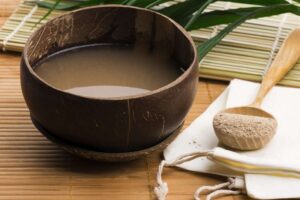
Water is essential for household work. It’s impossible to overlook the necessity of clean, safe water while washing clothes, making tea, or cooking. However, using tap water directly for various home uses is very impossible due to the lack of pure, clean, and usable water. Many of you worry about the quality of your drinking water, but you hardly think twice about the water you use for bathing, cleaning clothes, and kitchenware. Hard water, which causes unsightly stains in bathrooms and harms skin and hair, is available in many cities. Many don’t know that distinct purification and softening techniques are used for hard and polluted water.
Thus, we’re going to discuss the distinction between water filtration and softening in this blog, as leading companies like Water Doctors will tell you.
The difference between water filtration and water softening
Water filtration and softening are two distinct processes. The critical distinctions between a water softener and a water purifier are listed below.
Does a water softener purify water?
Hard water is safe, but its high mineral concentration can damage hair, skin, and appliances. A water softener softens water by eliminating surplus minerals, not pollutants. A water softener prevents limescale buildup in plumbing and appliances. To reduce the hardness of water, utilize a water softener to altogether remove calcium, magnesium, and other ions that create it. Changing the behavior of ions with citric acid diminishes their surface affinity.
The second method does not remove hardness; therefore, use a water softener. Water softeners exchange calcium and magnesium ions for sodium, reducing hardness and making water usable. Thus, water softeners soften hard water but do not cleanse it.
Why do we need a water purifier?
If you wanted filtered drinking water, then you’d need a water purifier. You can pick from RO, UV, and UF water purifiers, depending on your preferences. The purifiers make water safe by eliminating contaminants, bacteria, and salts. However, you must analyze the water quality to determine which water filter you should use.
Water purifiers filter water in several ways, such as:
- Reverse osmosis: This technique purges water of contaminants using a semi-permeable membrane.
- UV filtration: Water is treated with UV rays to eradicate germs and viruses.
- Activated carbon filtration: This technique employs activated carbon to draw pollutants out of water and eliminate unpleasant tastes and odors.
- Ion exchange: This technique removes heavy metals and other contaminants by swapping out ions with a comparable charge.
A water purifier can raise the water standard by eliminating dangerous contaminants, guaranteeing the water is safe to drink.
Many consumers cannot distinguish between a water softener and a water filter. Given the declining water quality, you must be sure about whatever product you require at home. You should use a water softener if you see a lot of stains, dry hair, or skin. However, you must utilize a water purifier, which employs several purifying techniques to make water safe for consumption to make drinking water fit for consumption. Or, if you want to tackle both problems, why not get both?

